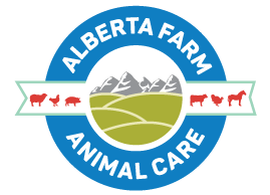By Kendra Juurlink, B.Sc. (Agr), Alberta Farm Animal Care
The condition of calves at a feedlot is an important consideration for producers. The calves experience various stressors, including weaning, transportation and adapting to new environment and feed sources. This can result in calves developing various health conditions including, bovine respiratory disease (BRD).
A research study published in January 2023, in the Applied Animal Behaviour Science Journal, Feeding behaviour and activity of beef calves during the first week at the feedlot: Impact of calf source and commingling ratios – ScienceDirect examined the impact of calf source and commingling ratios on feeding behaviour
The calves were brought from three sources including auction-derived, preconditioned and ranch-sourced calves. Preconditioned calves were those that had gradual weaning strategies, early castration and pre-exposing calves to a feedbunk. The calves behaviour was examined throughout the study. Level of activity, eating and time ruminating was examined. The calves were placed in pens based on where they were sourced from and in different ratios.
Some of the key findings from the research study included, preconditioned calves that had been exposed to a feedbunk had increased time eating. As well, pens that had higher proportion of preconditioned calves had increased time eating.
“Variables that may explain differences in feeding behaviour may include changes in the structure of social groups within commingled pens. “-Abigail Hodder
These findings are significant for producers because poor feed intake can result in morbidity and mortality at a feedlot. If calves are preconditioned to feedlot conditions, the more likely they are to maintain feed intake and level of activity which is important for producers from an economical standpoint and consumers from a consumption standpoint.

Submit articles to Kendra Juurlink at [email protected][email protected]. If you have any questions, please e-mail Kendra or call the Alberta Farm Animal Care office at 403-652-5111

